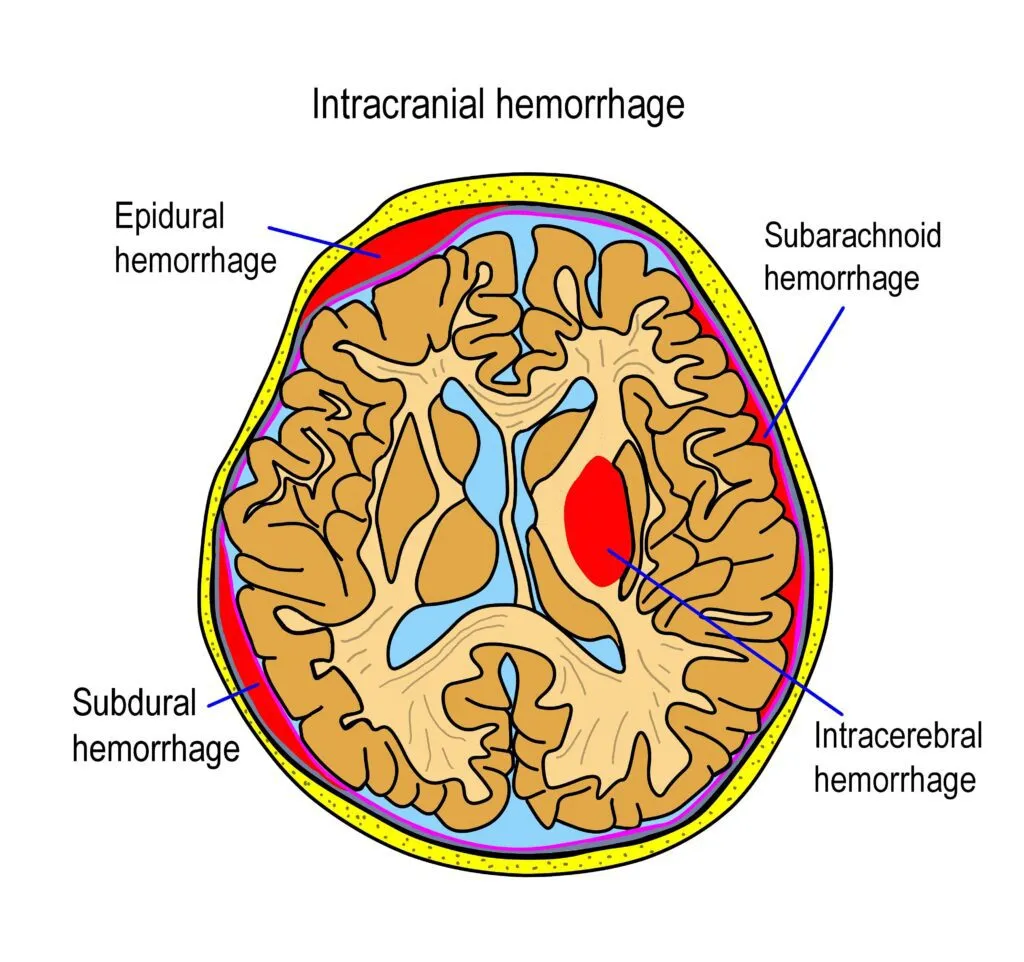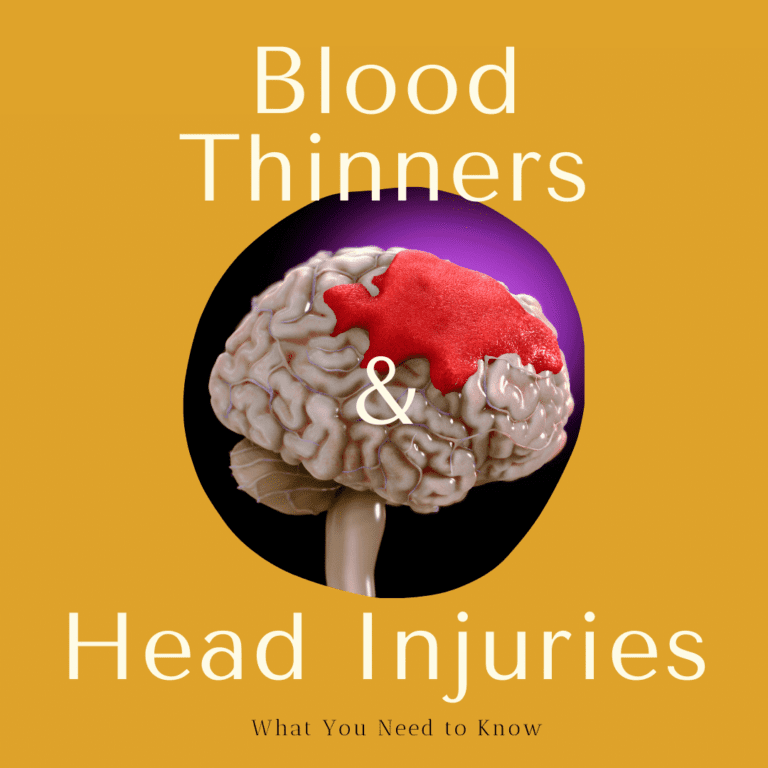Head injuries can be caused by a bump, blow, or jolt to the head, or by a penetrating head injury. They can also result from a fall, car accident, or sports injury. Depending on the location, force, and type of impact, some head injuries may be more serious than others. This can be the case for individuals who currently take blood thinners. If you are someone who takes blood thinners, then it is important for you to be aware of how they can affect head injuries. In this blog post, we will review a recent article about blood thinners and head injuries, discuss the effects of blood thinners on head injuries, and provide some advice on how to stay safe.
What the Research Says
In November of 2021, research was presented at the annual meeting of the Radiological Society of North America (RSNA). The three year retroactive analysis focused on over 1,000 patients taking blood thinners who suffered a head injury. The sample was obtained based on patients who underwent CT imaging in the Allegheny Health Network between January 1, 2017-January 1, 2020. The breakdown of patients is as follows:
- 576 patients were taking newer blood thinners such as apixaban (Eliquis), rivaroxaban (Xarelto), and dabigatran (Pradaxa).
- 470 patients were taking older blood thinners such as warfarin, clopidogrel, or others.
- 345 patients were taking blood thinners and aspirin.
The total came to 1,046 patients; 547 women & 499 men with an average age of 77.5.
The study concluded that the risk of delayed intracranial hemorrhage and death after head trauma was significantly higher in patients taking older blood thinners. It was also noted that the risk of delayed intracranial hemorrhage and death after head trauma was also increased by taking aspirin in addition to any blood thinner.
“The rate of delayed hemorrhage was higher in patients taking older blood thinners compared to novel drugs, and significantly higher in patients taking aspirin in addition to the older medications,” Chang said in an RSNA news release.
The study was led by Dr. Warren Chang, a neuroradiologist and director of research for the Imaging Institute at Allegheny Health Network in Pennsylvania.
Understanding Intracranial Hemorrhage & Blood Thinners
Intracranial hemorrhage is bleeding within the skull. It can be a result of trauma to the brain, such as a head injury, or it can occur spontaneously, as in a stroke. Intracranial hemorrhage is a serious medical emergency and can lead to death if left untreated.

There are four types of intracranial hemorrhage:
- epidural hematoma: a collection of blood between the skull and the dura, the tough outer membrane that surrounds the brain. Usually seen with skull fractures.
- subdural hematoma: a collection of blood under the dura on the surface of the brain. Usually seen in instances where the head was moving forward and was snapped into the opposite direction.
- subarachnoid hemorrhage: bleeding into the space between the brain and the meninges. This is usually a result of an aneurysm.
- intracerebral hemorrhage: bleeding within the brain tissue itself. This is most commonly seen in people who are experiencing a stroke.
Delayed intracranial hemorrhage is bleeding in the skull or brain that occurs within 48 hours of the initial injury. Since a diagnostic CT is taken shortly after injury, a delayed bleed can be easy to miss since areas of the brain may look normal at the time the scan was taken. Nevertheless, this type of bleeding can be very serious and may lead to permanent brain damage or death.
Blood thinners are medications that are prescribed to help prevent blood clots from forming. There are two types of blood thinners:
- Antiplatelet, such as aspirin, clopidogrel (Plavix), dipyridamole (Persantine), and ticlopidine (Ticlid). They work by interfering with the binding of blood platelets to prevent the blood from clotting.
- Anticoagulants, such as warfarin (Coumadin, Jantoven), enoxaparin (Lovenox), heparin, apixaban (Eliquis), rivaroxaban (Xarelto), and dabigatran (Pradaxa). They work by increasing the amount of time it takes the blood to clot.
Simply stated, blood thinners can make it difficult for the body to clot blood properly, and this can lead to serious complications if you suffer a head injury.
What Does This Mean for You?

If you are someone who takes blood thinners, it is important to be aware of the risks associated with head injuries. If you experience a bump, blow, or jolt to the head, it is important to seek medical attention right away. Even if you do not feel any symptoms after the injury, it is still important to be evaluated by a doctor. If you are taking an older blood thinner such as warfarin, clopidogrel, or you are taking aspirin in addition to a blood thinners, it is especially important to seek medical attention right away if you experience a head injury since the risk of delayed hemorrhage is higher in patients taking these medications.
A CT scan will be performed to assess the extent of the injury. If a bleed is detected, you may need to undergo treatment to stop the bleeding. Oftentimes, this can include medications to reduce swelling and/or to counteract the effects of the blood thinners. In severe cases, it may be necessary to have surgery to drill a hole in the skull to relieve pressure or to remove a blood clot.
Since the risk of delayed intracranial hemorrhage is increased in people on older blood thinners and/or who are taking aspirin in coordination with blood thinners, it is important to seek medical attention if you are experiencing any of the following symptoms up to 48 hours after your injury:
- Sudden or severe headache
- Headache with neck stiffness
- Nausea and vomiting more than twice in 24 hours
- Drowsiness
- Seizure
- Confusion
- Loss of consciousness
In Conclusion
Blood thinners are medications that help prevent blood clots from forming, however they can increase the risk of delayed intracranial hemorrhage after a head injury. Therefore…
=>If you are taking a blood thinner, it is important to be aware of the risks associated with head injuries. If you experience a bump, blow, or jolt to the head, it is important to seek medical attention right away. Even if you do not feel any symptoms after the injury, it is still important to be evaluated by a doctor.
=>If you are taking an older blood thinner such as warfarin, clopidogrel, or aspirin in addition to a blood thinner, it is especially important to seek medical attention right away if you experience a head injury since the risk of delayed hemorrhage is higher in patients taking these medications.

Dr. Kashouty, a diplomate of the American Board of Psychiatry and Neurology (ABPN), practices general neurology with fellowship trained specialization in clinical neurophysiology. Dr. Kashouty finds the form and function of the nerves and muscles the most interesting part of neurology, which is what led him to specialize in neurophysiology with more emphasis on neuromuscular conditions. He treats all neurological diseases, but his main focus is to treat and manage headaches, movement disorders and neuromuscular diseases.





